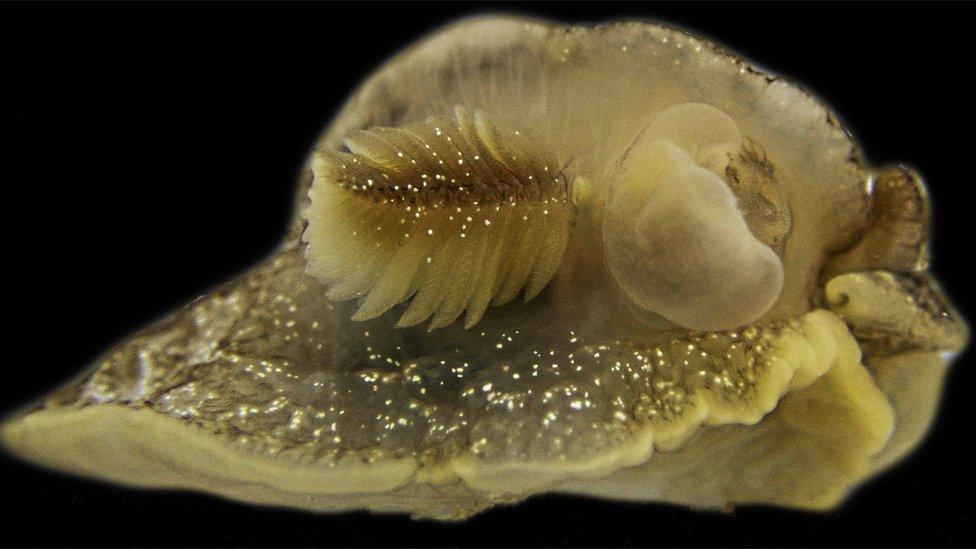Climate change: New sea slug species found in the sea near UK
- Published
- comments

Can you spot the strange, feathery gills on the side of its body?
A new species of sea slug has been discovered off the South-West coast of England.
It's been named the Pleurobranchaea Britannica - not the catchiest name - but if you notice "Britannica" explains where the sea slug was found.
This sea slug species is related to ones that tend to live in warmer oceans than those around the UK.
As the seas are warming up due to global warming, sea creatures are moving to different places to continue to survive.
This ship, the Endeavour, was the home of the discovery. Experts on the ship take part in important research around Britain's seas, looking at wildlife and the impact of climate change
What are sea slugs?
Sea slugs are small, shell-less molluscs - like the slugs you get on land! Because they live in lots of interesting places in the sea, they come in all sorts of shapes, sizes and colours. They eat things like algae, sponges and seaweed.
There are around 100 different species of sea slug found in seas around Britain.
You can find funky sea slugs all over the world - including this bright purple Mediterranean sea slug!
What does this mean for our environment?
Scientists say that this discovery shows we still have a lot to learn about our seas.
The first part of the sea slug's name - Pleurobranchaea - is a larger group of types of sea slug, that are usually found in warm waters like those found around Spain.
Ross Bullimore, who works for the Centre for the Environment, Food and Aquaculture Science, explained that warmer seas mean some species can expand the environment that they can live in.
However, this can mean bad news for other creatures. The sea's ecosystem needs lots of variety, with lots of different fish, plants and animals working together to keep the environment healthy.
As the oceans heat up, scientists are concerned about the impact this will have on the creatures that call it their home.
Over the past 100 years, the ocean's average temperature has raised by around 1.5C.
Although this doesn't sound like much, even tiny changes can have a huge impact on the sea's ecosystem.
The sea heats up as part of the greenhouse gas effect.
When we burn fossil fuels, like coal, oil and gas, they emit a gas called carbon dioxide.
This sits in the Earth's atmosphere, trapping the sun's rays for longer, and slowly heating the planet up.
